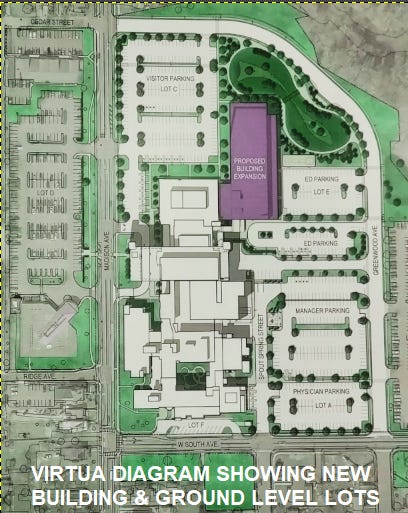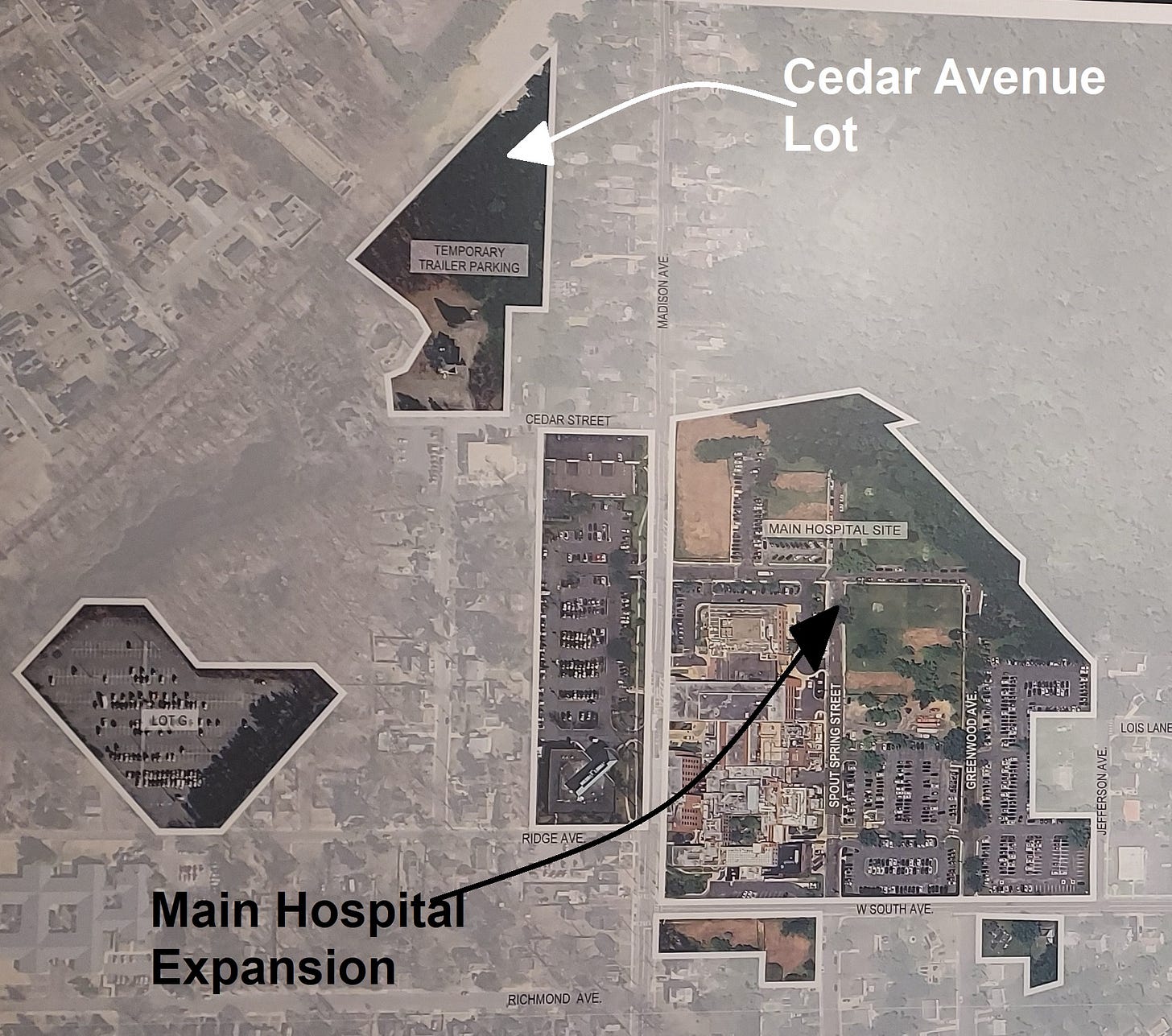VIRTUA EXPANSION PROJECT APPROVED
ONE PLANNING BOARD MEMBER ASKS HOW IT BENEFITS MOUNT HOLLY
In a marathon 9/15/2025 Planning Board meeting, Virtua Hospital fielded its full compliment of professionals to answer every question posed by Mount Holly’s professionals and by its Planning Board members. At the end of the evening, there was only a single member of the Board who was not convinced that the project was deserving of a Yes vote. Member Paul Kennedy said there is “no increase in the number of beds, no increase in the number of operating rooms, no upgrade of the Emergency Room facilities and no trauma center capacity” [in case of a mass casualty event]. Board attorney Garty told Mr. Kennedy that no matter how sensible his objections may seem in terms of preparedness and the needs of our community, the job of the Planning Board is narrow: determine whether the plan is compliant with zoning requirements.
Of course, the application before the Planning Board was not fully compliant with zoning requirements and that was why Virtua was requesting variances. This is where a Planning Board can go a little beyond the letter of the zoning requirements. Since Mt. Holly does not have to grant the variances, this request by the applicant forms a basis for negotiation. The negotiations start between the professionals via email and correspondence before the meeting. They often discuss fine details like how bright the parking lot lights are, or what type of plants will be in the landscaping. These are not items that the applicant is inclined to resist changing. But the Board members generally don’t get to suggest things until the night of the vote. And in those last minutes before a vote, a board member who objects to something substantial [like a hospital expansion with no additional beds] is likely to find that the applicant is not open to a change.
But even smallish changes introduced by members at the meeting, such as the addition of couple speed humps, can cause an applicant to push back. This is what happened when Deputy Mayor DiFolco suggested that the new road being built around the back of the hospital is likely be used as a short cut by people who want to avoid the light. His comment was based on his experience with the intersection on Branch Street near the 7-11 which has a crosswalk. He believes drivers will speed on the new road which has an employee crosswalk from a parking lot to the hospital. Virtua pushed back, saying that painted crosswalks and signs will be enough to stop people from speeding.
And this is why I expected that my suggested change would not find a receptive response from Virtua. During the public comment period, I stated that after this project, Virtua should not be allowed to expand any further into tax paying properties. Since their considerable parking space is all at ground level, and since Virtua stated that they have no plans to develop the 3 acre lot on Cedar Avenue, they should commit now to deed restrict that lot from any future building. Instead of using that lot, I suggested that they use one or more of their ground level parking lots for any future expansion and create a parkade building to make up for lost parking spaces.
Virtua vigorously objected to the notion of deed-restricting the wooded 3 acre lot on Cedar Avenue. While they have no plans to develop that lot now, they would not guarantee that it might be used for expansion in the future.




